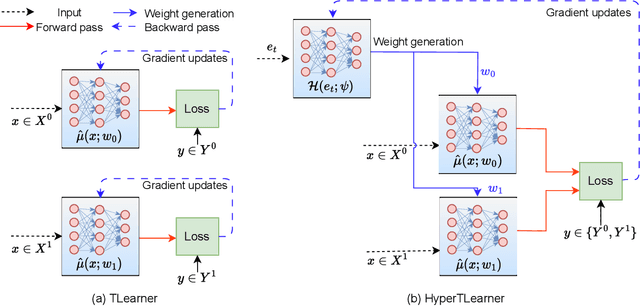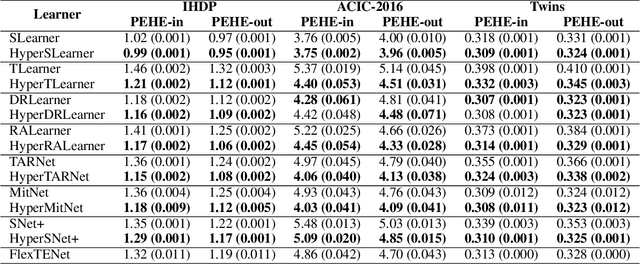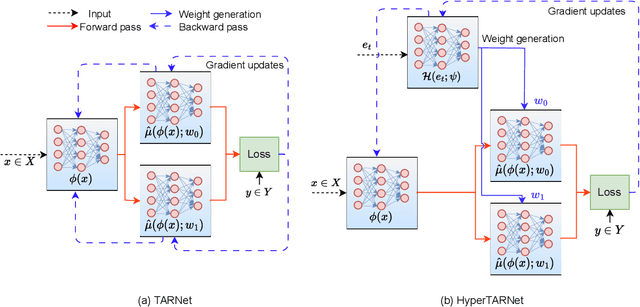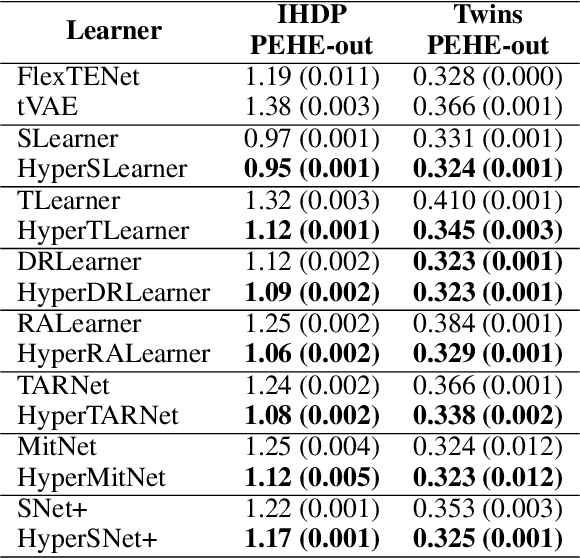Dynamic Inter-treatment Information Sharing for Heterogeneous Treatment Effects Estimation
Paper and Code
May 25, 2023



Existing heterogeneous treatment effects learners, also known as conditional average treatment effects (CATE) learners, lack a general mechanism for end-to-end inter-treatment information sharing, and data have to be split among potential outcome functions to train CATE learners which can lead to biased estimates with limited observational datasets. To address this issue, we propose a novel deep learning-based framework to train CATE learners that facilitates dynamic end-to-end information sharing among treatment groups. The framework is based on \textit{soft weight sharing} of \textit{hypernetworks}, which offers advantages such as parameter efficiency, faster training, and improved results. The proposed framework complements existing CATE learners and introduces a new class of uncertainty-aware CATE learners that we refer to as \textit{HyperCATE}. We develop HyperCATE versions of commonly used CATE learners and evaluate them on IHDP, ACIC-2016, and Twins benchmarks. Our experimental results show that the proposed framework improves the CATE estimation error via counterfactual inference, with increasing effectiveness for smaller datasets.
 Add to Chrome
Add to Chrome Add to Firefox
Add to Firefox Add to Edge
Add to Edge